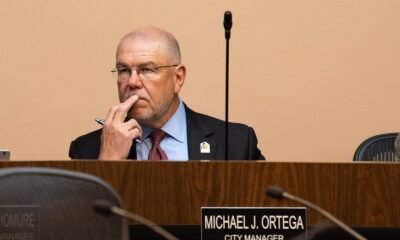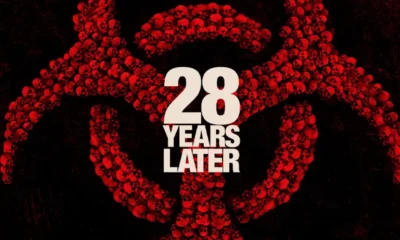border
Grijalva Announces Final Bow: After 50 Years in Tucson Politics, 2024 Will Be His Last Dance

Raúl Grijalva, the long-serving congressman from Arizona, has announced that his current election campaign will be his last. After nearly three decades in office, he will retire in January 2027 following one more two-year term, which he is expected to win in the upcoming November ballot. His departure from electoral politics is a significant moment for Tucson, and it feels comparable to the departure of beloved basketball coach Lute Olson from the University of Arizona. Grijalva’s influence has been profound and long-lasting.
Grijalva first engaged in politics in 1972 when he ran for a seat on the Tucson Unified School District Governing Board, an attempt that resulted in defeat. However, he turned things around in 1974, winning election and serving three terms. His political journey continued in 1988 when he was elected to the Pima County Board of Supervisors. In 2002, he successfully transitioned to the U.S. Congress, marking the beginning of a career that will wrap up after a remarkable 52 years in public service.
This year, Grijalva faced a personal challenge after being diagnosed with cancer, a battle he has met with resilience. His tenure has seen him become a prominent figure, often caricatured in ways that overshadow his realities. Grijalva has faced critiques from both sides of the political spectrum, labeled by some as a sell-out, while others view him as a radical. The truth lies somewhere in between; his ability to advocate for his constituents while navigating the complex world of politics has made him a unique presence in Tucson.
Initially, Grijalva emerged as a progressive voice through the La Raza Unida movement in the 1970s. Early on, he faced rejection, but his adaptability allowed him to win a seat and implement innovative educational programs. As a supervisor, he took on contentious growth issues in Tucson, ultimately promoting the environmentally conscious Sonoran Desert Conservation Plan—a legislative effort that sought to protect endangered species while managing development.
In Congress, Grijalva became a prominent figure in the Progressive Caucus and pushed for healthcare reforms, advocating a government plan akin to Medicare. Though his efforts faced significant pushback, ultimately leading to his support for the Affordable Care Act, his voice represented a critical component of early progressive politics in the U.S.
Throughout his career, Grijalva maintained an approach that allowed him to connect with both his supporters and adversaries. He has often found common ground, acknowledging opposing viewpoints while remaining steadfast in his advocacy for his constituents. This bipartisan tendency has fostered relationships with those across the aisle, including Republican colleagues, indicating a level of respect that extended beyond party lines.
However, his journey has not been without controversy. Grijalva’s call for a boycott against Arizona following the controversial SB1070 law showcases his willingness to take a stand, even when it risked political capital. Reflecting on that time, he recognized the fallout it caused, feeling sidelined by his own party during a critical election year.
Grijalva’s communication skills have helped shape his public image. He engaged openly with journalists and constituents alike, fostering a rapport that allowed for effective information sharing. Despite occasional conflicts regarding coverage, he understood the importance of maintaining relationships within the press.
There persists a narrative among some that Grijalva operates a political ‘machine,’ yet the reality reflects a spontaneous relationship with his constituents. His ability to engage voters across demographics and take time to connect with them personally has built a grassroots support system that transcends traditional political structures.
This willingness to navigate complex issues—such as immigration reform—demonstrates Grijalva’s commitment to serving his constituents. Rather than advocating for theoretical ideals, he prioritized pragmatic solutions that would bring real change to the lives of those in his district. His political philosophy embraced the idea of progress, even when faced with less-than-perfect circumstances.
As Grijalva prepares to step away from political life, his legacy as a champion for the environment, education, and social justice will continue to resonate in Tucson and beyond. With new leadership on the horizon, the lessons learned from his career will remain relevant, particularly the importance of advocacy and the necessity of compromise in the pursuit of progress.

















